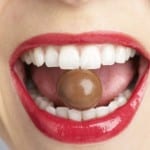 Bad breath (halitosis) is something we all have to deal with from time to time, but if this is a persistent problem for you, your dentist can help. Bad breath is a very common problem and it’s nothing to be ashamed about; dental treatments, including hygiene sessions, can help to banish bad breath for good, helping you to feel more comfortable and confident.
Bad breath (halitosis) is something we all have to deal with from time to time, but if this is a persistent problem for you, your dentist can help. Bad breath is a very common problem and it’s nothing to be ashamed about; dental treatments, including hygiene sessions, can help to banish bad breath for good, helping you to feel more comfortable and confident.
Why have I got bad breath?
Bad breath is commonly associated with bacteria, which collect and multiply in the mouth; when bacteria feed, they release gases, which have an unpleasant odour and this is why you experience bad breath. Bacteria usually gather as a result of poor oral hygiene. Smoking and eating foods that have a strong flavour or odour can also contribute to bad breath. Many cases of halitosis are linked to bacteria on the tongue, as this is often missed out when cleaning.
Dealing with bad breath
It’s perfectly normal to have bad breath in the morning or after eating, but if you find that you have bad breath most of the time or it is starting to impact on your confidence or the way you live your life, it’s time to seek help. Seeing your dentist and making regular appointments with your dental hygienist will make a massive difference to your oral health, as well as your confidence. The best treatment for bad breath is intensive cleaning and it’s also really important to maintain good oral hygiene at home. Your dental hygienist can chat through cleaning techniques with you and regular sessions will help to keep bacteria at bay and boost your oral health.
If you have problems with bad breath, don’t suffer in silence; call your dentist now to make an appointment and tackle bad breath for good.















